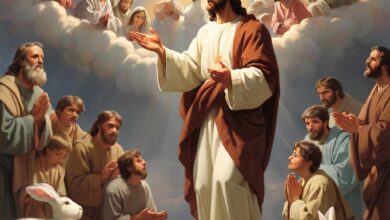Theme: Working For Our Lasting and Future Glory
Second Sunday of Lent – Year A
Readings: Gen 12, 1-4; Ps 32, 4-5. 18-22; 1Tim 1, 8-10; Matt 17, 1-9
It takes time to get to know a person. The longer we know a person, the better. It took the Apostles a long time to get to know Jesus and the longer they were with Jesus the better they got to know Him. They got to know Him better when He was transfigured on the mountain and they saw His divinity revealed.
They got to know Him better again after this when Jesus revealed that He would suffer and die in Jerusalem even though they did not understand until later. They got to know Jesus better again during the Last Supper, His agony in Gethsemane, Passion, death, and resurrection.
The entire time the Apostles were with Jesus they were getting to know Him better. It is the same for us. We also gradually grow in our love for and knowledge of Jesus and we also grow in understanding what Jesus is asking of us.
On this Second Sunday of Lent, the Lord through His transfiguration, gives us a glimpse of what the future and lasting glory that awaits us look like. Through this, He spurs and urges us on to be strong and courageous in our journey this season of Lent and beyond. The First Reading from Genesis leads us into the most significant event for God’s people in the Old Testament, namely the call of Abraham. To understand the call of Abraham,we need to know the context out of which he was called. That call reveals God’s plan for the chosen people.
Abraham is called into a land the Lord would show him; from a land he knew best into the unknown. The city of Ur (in present day Iraq) was a large city with spacious streets and large markets. It was a prosperous city with dazzling technology of the day. For the majority of the people in Ur the only thing that seemed to matter most was prosperity. The people’s ancient religion centred on a life-force or fertility gods. Their rites involved orgies complete with temple prostitutes – male and female.
They also had human sacrifices including infants. Their gods demanded more and more blood of children. That was evidently a culture of death. It was those terrible gods Abraham was told to leave. The gods of our culture today are remarkably similar to those Abraham was asked to leave and go to a land the Lord would show him.
Through the media, we are daily sucked into a culture of consumerism, a culture of violence and of death. Like Abraham, we are being called to leave our country and culture, to a land the Lord will show us. A response to the call must make us leave our comfort zone.
We are challenged to have faith like that of Abraham, who leaves everything behind in deep trust, knowing that God would never fail him. God promised Abraham underserved blessings for his obedience, a clear manifestation of God’s mercy.
In the Second Reading, Paul once again directs us to the grace of God as what sustains us in our bid to respond to our call. This grace though ancient, because it was there “before the beginning of time” was revealed by the appearing of Jesus Christ. In other words, we must try in our daily efforts to respond to our call look up to this ancient grace which is Christ who by His death and resurrection, has guaranteed our future glory.
The Second Reading also connects well with the First Reading as Paul exhorts Timothy to accept the misfortunes that come along with discipleship; the trials that are part of a life of righteousness; a life of holiness, similar to that of Abraham, enduring his journey in faith and trust into the unknown.
The Gospel for the Second Sunday of Lent gives us the Transfiguration of Jesus on Mount Tabor. It is rich in material for reflection. There is always something awe-inspiring about mountains. On the top the air is clean and crisp. The panoramic view of the surrounding country-side lifts us from the hustle and bustle of the rat-race, and raises our mind and heart to God. The top of a mountain is a natural place for encountering God.
It is small wonder then that in the Bible God often chooses a mountain top to reveal Himself and His plans. It was on Mount Sinai that God gave the Ten Commandments to Moses. Jesus gave His first teachings in the Sermon on the Mount. He often retired to the mountain at night to pray. He was crucified on Mount Calvary and ascended to heaven from Mount Olivet.
The message of this Sunday may be summed up in a few points:
* We are called like Abraham to leave our country and culture of death; to be radically different from what the world around us expects: to be part of a new culture of life; a new way of life in Christ. But the question before us is: can we withstand the seductions of today’s culture? Yes, we can. Can we overcome today’s subtle persecution and mockery due to our Catholic values and beliefs? Yes, we can.
* While it is tough being faithful Christians in today’s culture, we can live our faith because God in Christ gives us the strength to be always faithful.
* We are called to bear our share of the cross through self-discipline and obedience. As ridiculous as that may seem to others, choosing faithfulness brings God’s blessings in the end.
* We are as human as Jesus and we too become frightened, discouraged, frustrated, caught up in a vortex of worldly troubles that drags us along. Do we go up to our mountains and pray? Do we take the time to get in touch with nature and let God talk to us? Give yourself to God. This is Good News and the kind of good news we need to hear when problems of life surround us. In this Lenten voyage, let us find some time to let God comfort us. Amen.

